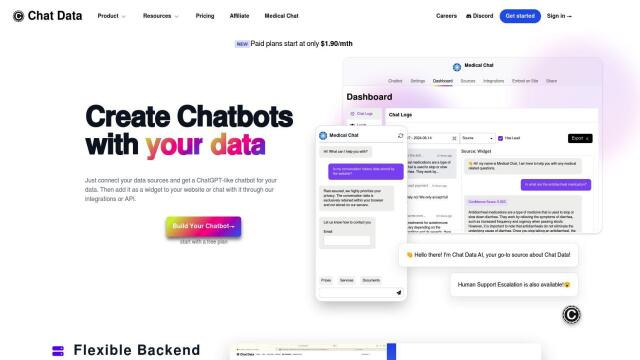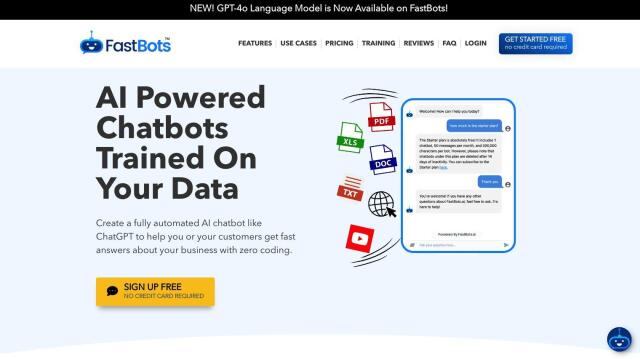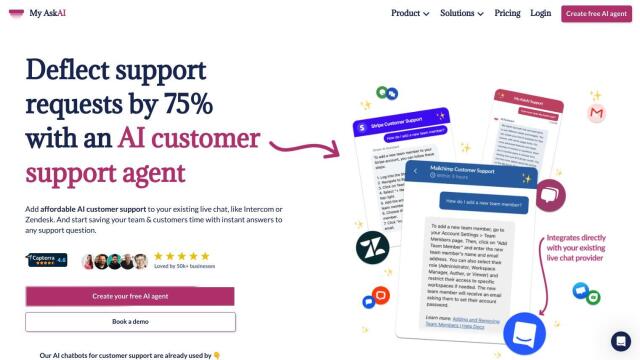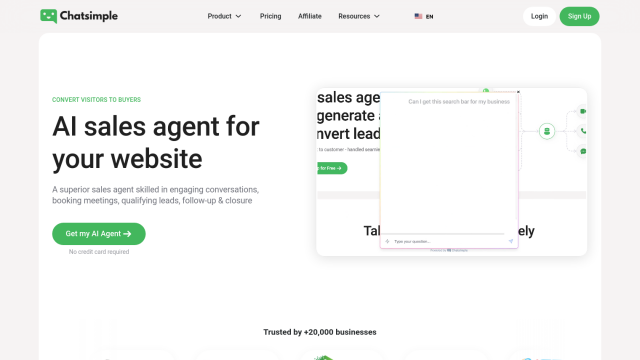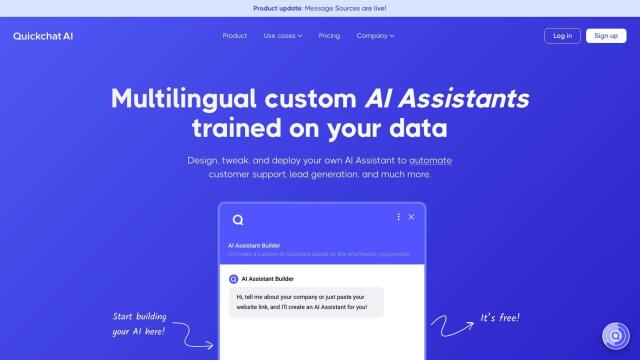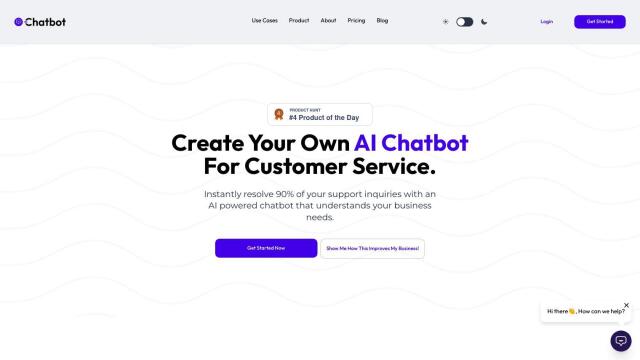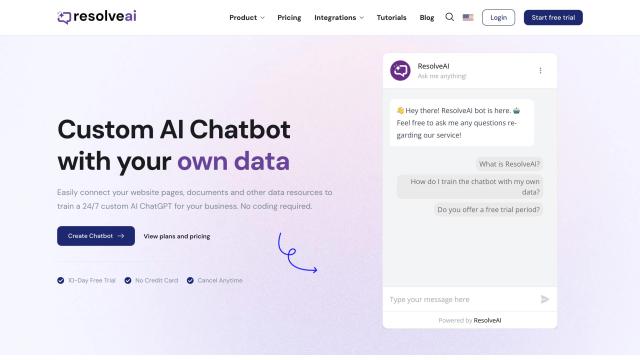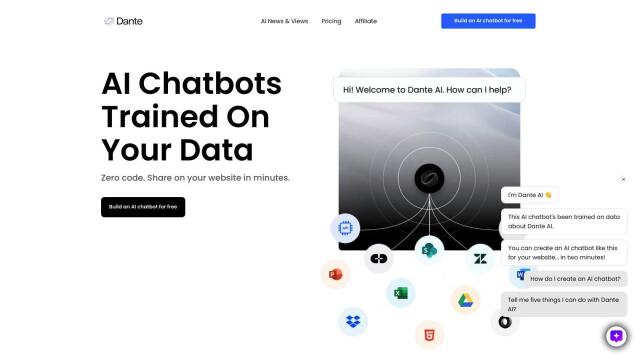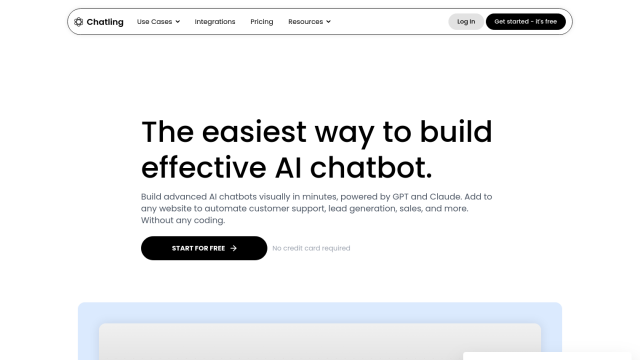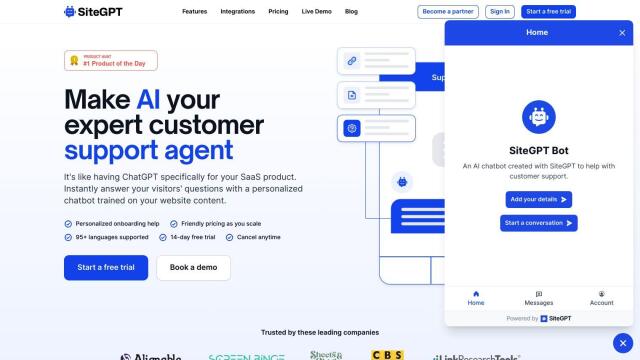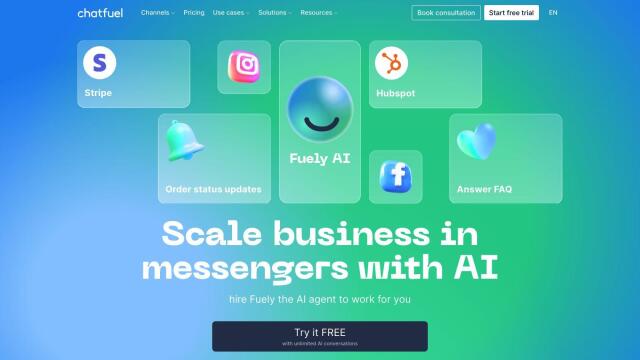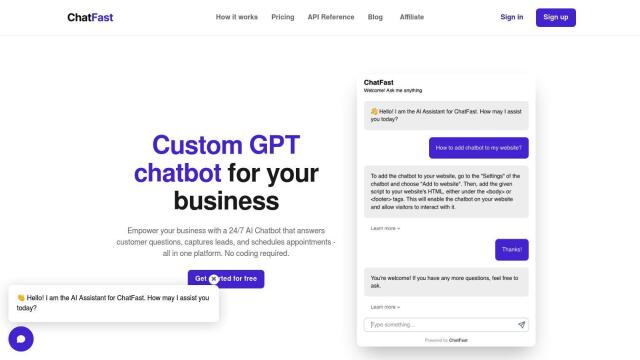
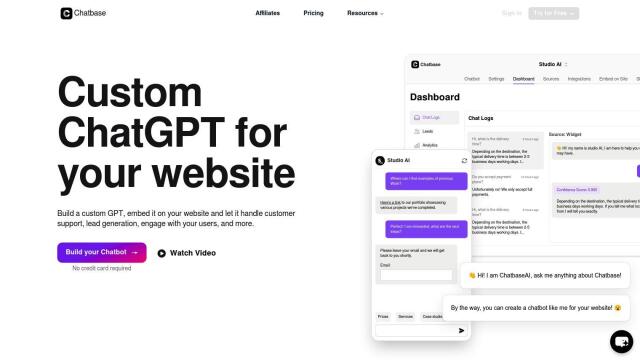
Chatbase
If you're looking for a Chat Data alternative, Chatbase is worth a look. The company's customizable AI chatbot platform can be embedded directly into websites or use an API for customer support, lead generation and user engagement. It can ingest data from a variety of sources, including files, websites and services like Slack and WhatsApp, to train chatbots. The platform features include trustworthy answers, advanced analytics and security, and tiered pricing that includes a free option, so it should be adaptable to a variety of business needs.


Wonderchat
Another contender is Wonderchat. The service lets you create ChatGPT chatbots based on website links or PDF files, and it offers features like 24/7 support, lead generation and custom chatbots that fit your brand tone. It supports multiple languages and can be integrated with popular website builders like WordPress, Wix and Shopify, and offers real-time support monitoring and escalation. Pricing starts at $49.99 per month (Lite) and goes up to $499.99 per month (Professional), so it's good for businesses that want to improve customer support and internal collaboration.


Chaindesk
You could also look at Chaindesk. The no-code platform lets you create custom AI chatbots trained on your business data to automate customer support, lead generation and team workflows. Chaindesk uses Generative AI technology and offers features like instant answers, omnichannel conversations, human handoff and integration. The platform's pricing tiers, including a free option, are designed to accommodate different business needs, so you can grow as needed.

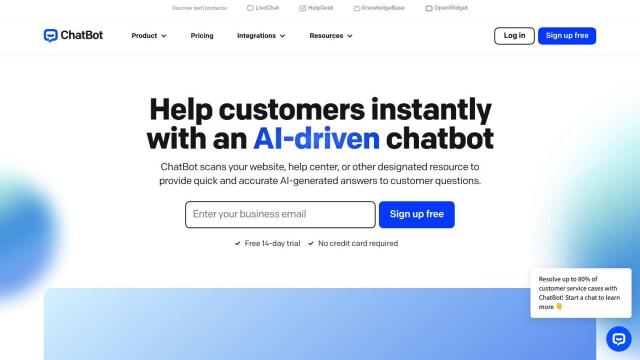
ChatBot
If you want a more automated customer service option, ChatBot has a powerful platform for creating chatbots from scratch without programming knowledge. It indexes designated resources to deliver fast, accurate answers and can integrate with multiple data sources. Data is kept private with in-house hosting and processing. With integrations with common tools and more advanced features through an open API and webhooks, ChatBot can handle up to 80% of customer inquiries, leaving humans for more complex issues.

